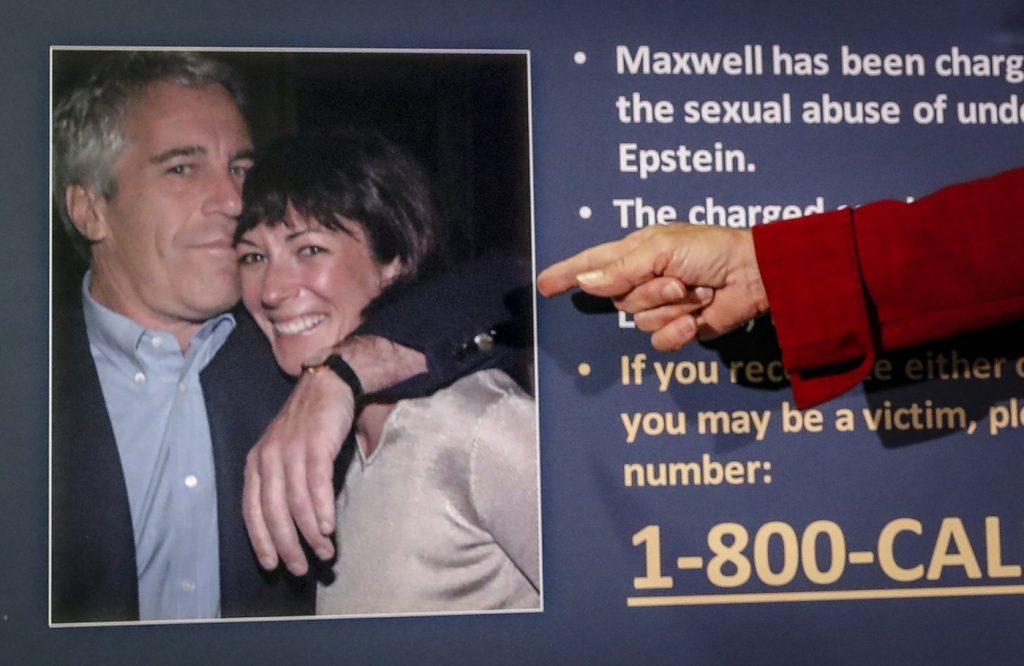The indictment of Jeffrey Epstein and his former associate Ghislaine Maxwell by federal grand juries on sex trafficking charges did not include direct testimonies from any alleged victims, according to the Justice Department. This disclosure was made as part of the department's argument for unsealing the grand jury transcripts, which are generally confidential. Reports indicate that only two law enforcement witnesses testified in the proceedings.
In a court filing submitted late Tuesday, Justice Department officials reiterated their request for the release of the grand jury records, highlighting significant public interest in the case. They sought to assure the judges that making the records public would not jeopardize the victims of Epstein and Maxwell’s crimes. The memorandum noted that while the grand jury testimony content was not specified, many aspects have already been revealed during Maxwell’s trial in December 2021 and through numerous civil lawsuits filed by victims over the years.
The Justice Department’s memo described the grand jury witnesses to respond to inquiries from two judges who must authorize the records' release. Typically, grand jury transcripts are not made public unless required for judicial proceedings. The memo referenced a 1997 ruling from the 2nd U.S. Circuit Court of Appeals, asserting that judges have broad discretion, implying that public interest alone could justify releasing grand jury information.
The Epstein grand jury, which met in June and July 2019, heard from only one witness, an FBI agent. In contrast, the Maxwell grand jury, meeting in June and July 2020, and March 2021, heard testimony from the same FBI agent and a New York Police Department detective. It is not unusual for grand juries to hear only from law enforcement representatives, as their function is limited and does not require a determination of guilt.
The memorandum was signed by Jay Clayton, the interim U.S. Attorney for the Southern District of New York, along with Attorney General Pam Bondi and Deputy Attorney General Todd Blanche. The timing of the request to unseal the transcripts is significant, as it followed an announcement earlier in July that the Justice Department would not release additional investigative files related to Epstein, which frustrated some members of President Donald Trump’s supporter base. These individuals had anticipated the release of materials surrounding Epstein's dealings, which were a subject of numerous conspiracy theories.
Maxwell is currently serving a 20-year prison sentence following her conviction on sex trafficking charges related to Epstein’s activities. Last week, she participated in a 1.5-day interview with Justice Department officials, where she addressed inquiries about about 100 individuals, as revealed by her attorney. This interview was prompted by Trump’s directive to identify credible evidence about others who may have been involved in criminal activities.
Trump has consistently denied having prior knowledge of Epstein's crimes and claims to have distanced himself from Epstein long before the latter's arrest. However, questions regarding the Epstein case continue to loom over Trump, overshadowing his administration's accomplishments. When recently questioned about the possibility of pardoning Maxwell, Trump shifted focus back to administration achievements.
Following the request to unseal the grand jury records, former prosecutors in Manhattan suggested that the transcripts would likely be concise, consisting mainly of testimony from law enforcement regarding evidence pertinent to the indictments against Epstein and Maxwell. The court memorandum indicated that many victim accounts discussed before the grand jury were later presented publicly during Maxwell’s trial.
Despite the push for unsealing the transcripts, it was noted that no family members of Epstein or Maxwell have expressed interest in the matter, although Maxwell has hinted at filing a position with the court. The memorandum underlined that the request to unseal is aligned with the growing public demand for additional disclosures concerning Epstein and Maxwell’s crimes and the investigative efforts of the Justice Department and FBI.
Epstein had previously entered a non-prosecution agreement in 2008 for state charges in Florida, which allowed him to avoid a potential life sentence and only serve 13 months. He faced federal charges again in 2019 for similar allegations, underscoring the ongoing complexity and public interest surrounding his case.












